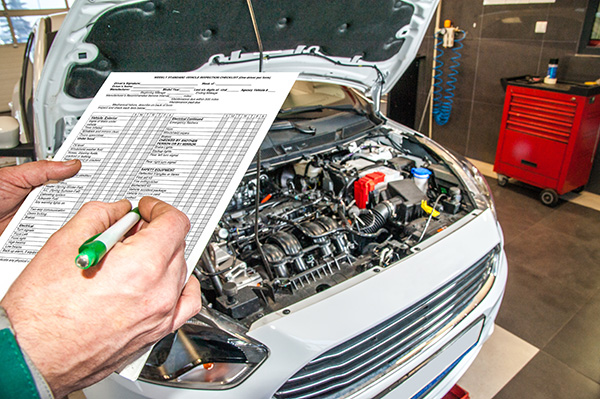
Regular car maintenance is essential to keep your vehicle running at its best, and that's where scheduled services like the 30k, 60k, and 90k come into play. These milestones mark important checkups to ensure your car remains in peak condition, reducing the chances of unexpected breakdowns or expensive repairs down the road. But what exactly happens during these services? And why are they so crucial to your vehicle's longevity?
What Is a 30k/60k/90k Service
You might be wondering, "Why do I need to bring my car in for service at 30,000 miles, 60,000 miles, or 90,000 miles?" The answer lies in the design of modern vehicles. Manufacturers recommend these service intervals because they know the specific parts that wear down over time and mileage. By inspecting and replacing these parts regularly, you can prevent bigger issues that could leave you stranded or facing costly repairs.
Each interval represents a detailed inspection and service of crucial vehicle components. While these services share many similarities, the depth of inspection increases with each one. Keeping up with these services ensures that your car remains reliable and performs efficiently, helping to extend the life of your vehicle.
What Happens During a 30k Mile Service?
The 30,000-mile mark is typically the first major maintenance service your vehicle will undergo. At this stage, your car has already handled a fair amount of driving, and it's time for a thorough inspection. Here’s what you can expect during this service:
Fluid Changes
This includes changing essential fluids like engine oil, brake fluid, and transmission fluid. These fluids are vital for lubricating and cooling critical parts of your car.
Filter Replacements
Your air filter and cabin filter will likely be replaced during this service. Clean filters ensure that both your engine and the air inside your car remain free of harmful particles.
Brake Inspection
The technician will check the brake pads, rotors, and brake lines for any signs of wear. If necessary, the pads will be replaced to maintain optimal braking performance.
Tire Rotation and Balance
Tires wear unevenly over time, so rotating them helps prolong their lifespan. Ensuring they are balanced also reduces vibrations and provides a smoother ride.
Belt and Hose Check
Over time, belts and hoses can crack or wear out. During this service, they’ll be inspected and replaced if needed to prevent potential failures.
What to Expect at the 60k Mile Service
When you hit the 60,000-mile mark, your vehicle has gone through a lot more wear and tear, so this service is more comprehensive. In addition to the tasks performed at the 30k mile service, a few additional components will need attention:
Timing Belt Replacement
Some vehicles are equipped with timing belts that need replacement around the 60k mark. A worn-out timing belt can snap, causing major engine damage, so this is a critical task.
Coolant Flush
Over time, coolant becomes contaminated and loses its ability to regulate your engine's temperature effectively. Flushing the coolant system at 60,000 miles helps prevent overheating and engine damage.
Transmission Service
At this point, the transmission fluid and filter will likely be changed if your vehicle has an automatic transmission. This helps ensure smooth shifting and extends the life of your transmission.
Spark Plug Replacement
Spark plugs are responsible for igniting the air-fuel mixture in the engine. By 60,000 miles, the original spark plugs may be worn out, affecting performance and fuel efficiency.
The Comprehensive 90k Mile Service
By the time your car hits 90,000 miles, it's a well-seasoned machine, and it requires an in-depth inspection to keep running smoothly. The 90k service is often the most comprehensive and typically includes all the tasks performed during the 30k and 60k services, along with a few more significant checks:
Drive Belt Inspection and Replacement
Drive belts, also known as serpentine belts, may begin to show signs of wear and cracking by this stage. Replacing them ensures your car’s accessories, such as the alternator and power steering, continue to function properly.
Fuel System Cleaning
At this mileage, carbon buildup can affect the fuel injectors, reducing performance. A fuel system cleaning helps restore engine efficiency.
Suspension and Steering Components
The shocks, struts, and other suspension parts will be thoroughly inspected for wear and tear. Any damaged components will be replaced to maintain smooth handling and ride quality.
Battery Testing
The battery will be tested to ensure it’s still holding a charge and functioning correctly. If it’s nearing the end of its lifespan, it may be replaced to avoid an inconvenient breakdown.
Why Sticking to Scheduled Maintenance Matters
Scheduled maintenance isn't just about following a manufacturer’s recommendations—it's about keeping your car running reliably and efficiently for years to come. Regular 30k/60k/90k services can save you money in the long run by preventing costly repairs that stem from neglect. For example, skipping a timing belt replacement can lead to engine failure, while ignoring worn-out spark plugs can affect fuel economy.
By investing in these routine services, you ensure that your vehicle stays in optimal condition, maintains its resale value, and gives you peace of mind on the road.
Take the guesswork out of car maintenance! Schedule your 30k/60k/90k service with Bexley Automotive and keep your vehicle running at peak performance. Our expert technicians are ready to inspect, service, and keep your car in top shape. Contact us today!